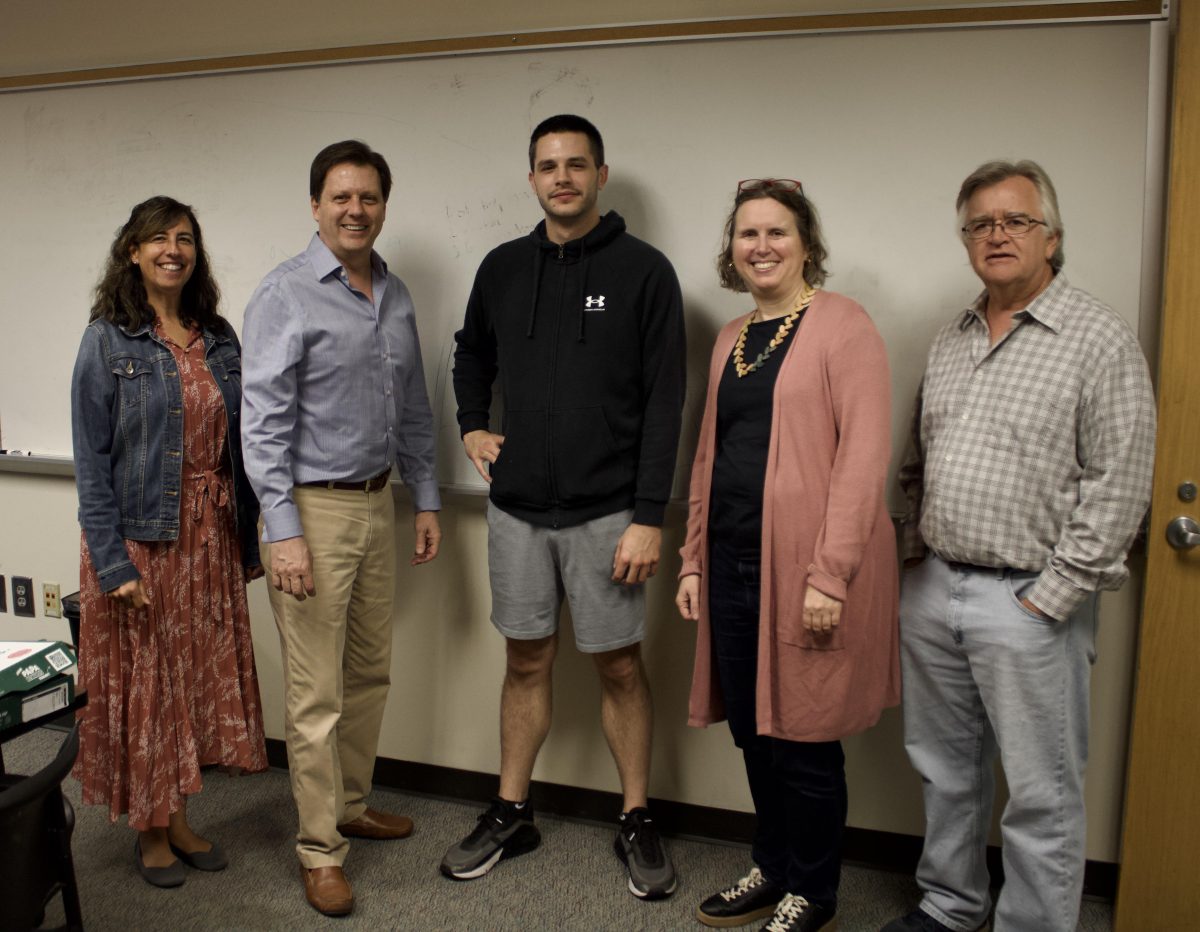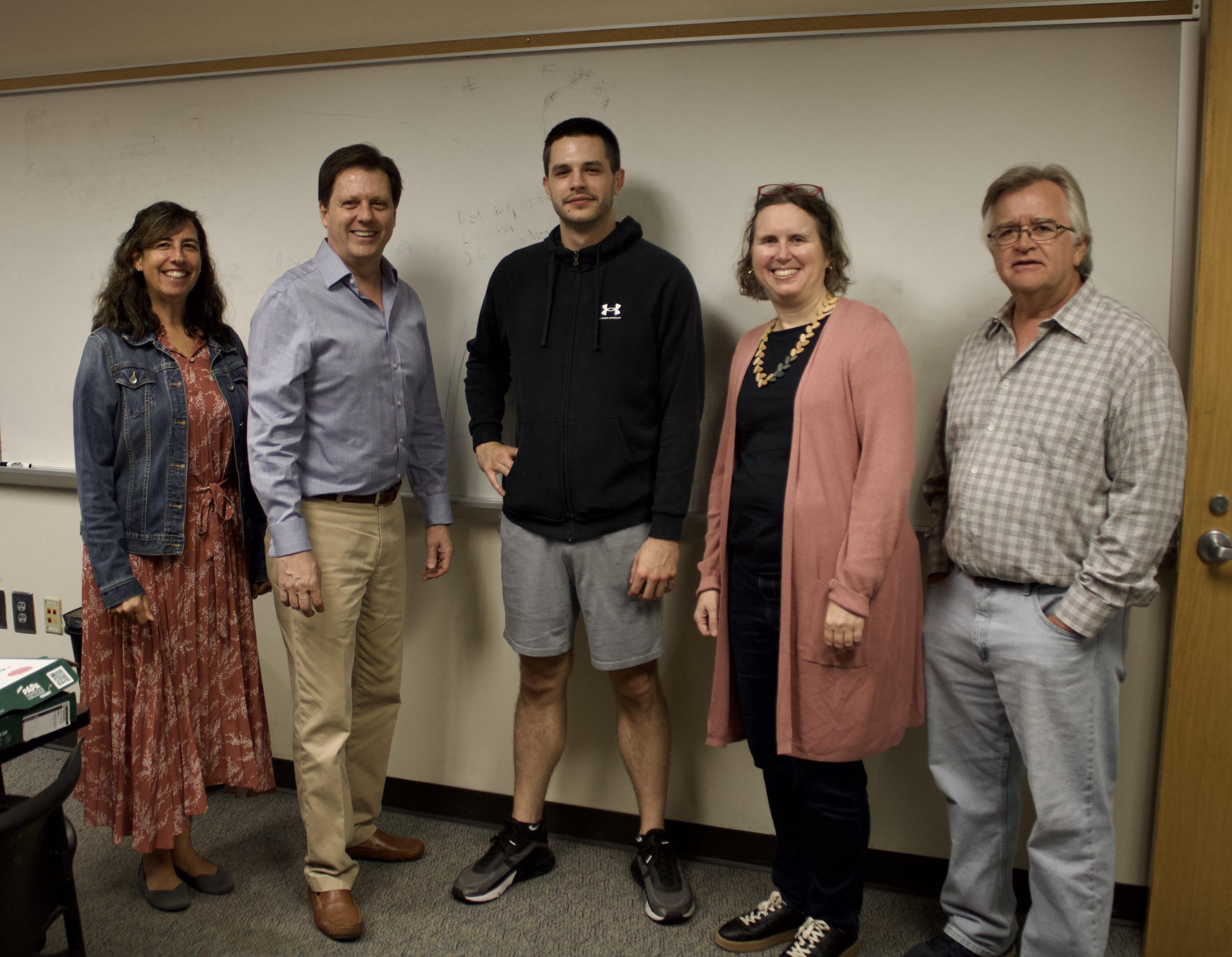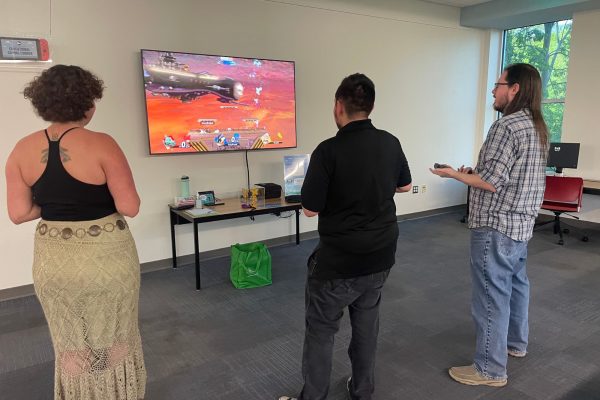Communication majors merging
January 22, 2013
The Communication Arts Department will merge the multimedia communications program and the journalism program beginning fall 2013.
“It’s basically going to reflect trends going on in discipline,” Dr. Curtis Ricker, interim dean of the College of Liberal Arts and Social Sciences, said. “If we look at media, it used to be very standard that the bulk of your dissemination of material news was print in newspapers, and that was the source that people relied on, supplemented by radio and then television, and television became the dominant force.”
The department made the change in order for graduates to do jobs in various fields so that they are not as limited, Dr. Reed Smith, a professor in the Communication Arts Department, said.
“The change is being phased in already beginning with this semester, and the process is being approved by the University Curriculum Board. We are certain of the approval and have already combined some classes, but the name won’t change until fall 2013,” Reed said.
The multimedia communications program was formerly separated into three parts: Information, production and film. The journalism program covered newspapers and magazines as a completely separate degree.
The four program degrees will now merge into two programs.
One program that will be created from the merge is multimedia journalism, which will include reporting and news writing, as well as editing. This major will also educate students on using digital cameras and video cameras and how to shoot and edit film.
The second program will be a combination of multimedia production and film, which will prepare students to be producers, editors and film shooters.
As journalism has evolved in the recent years, a merge of the majors could help prepare students for their future careers.
“The faculty did an extensive review of the curriculum and the major and the requirements, and so it’s an outgrowth and continuation of that. It’s also a recognition that the distinct boundaries are no longer so distinct between the disciplines,” Ricker said.
Students who are more advanced in their majors will have a choice about which degree they want to keep working toward.
The juniors and seniors in the current programs will be allowed to choose to either remain in their current programs or switch into one of the new programs without having to start everything over, Reed said.
“It won’t cost extra time or money,” Reed said.
Students set to graduate in spring 2013 will see no change or affects.
Ricker said, “We do try to accommodate, and [ensure] that students who are already in progress are not negatively affected. We want to make sure graduates are competitive and extraordinary when they enter the workplace.”









